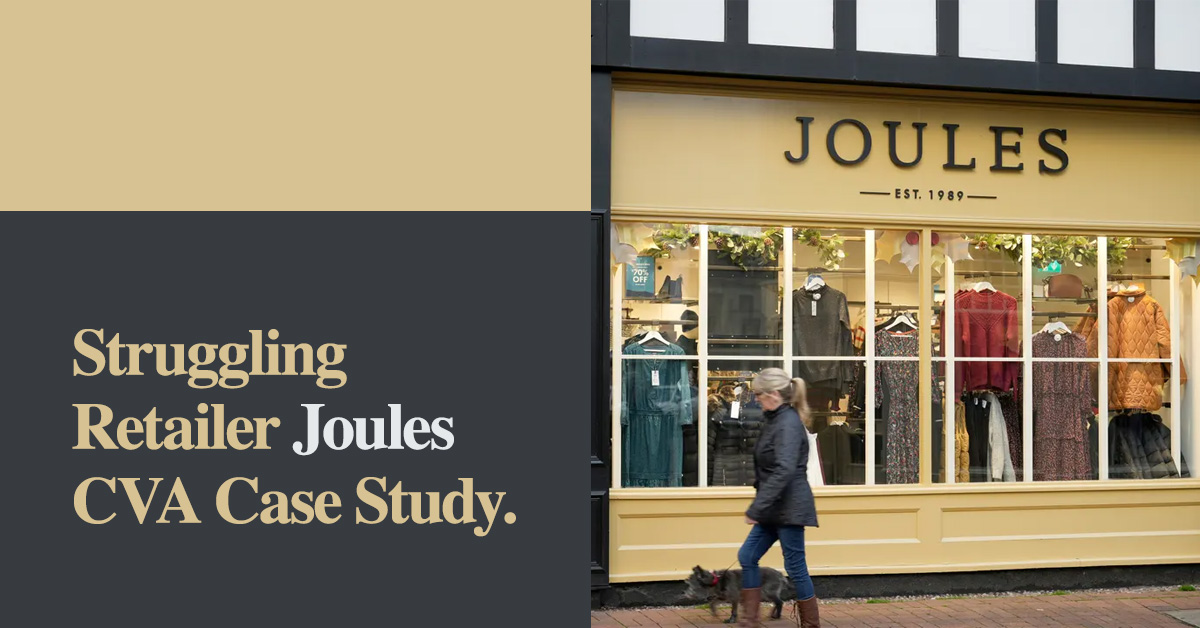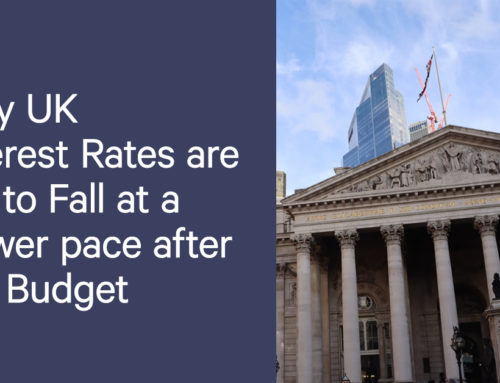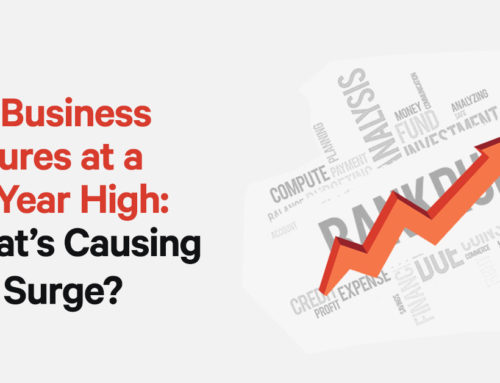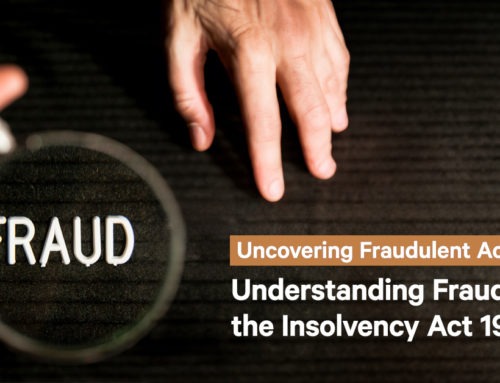It’s a difficult time for a number of different retailers and brands at the minute as Joules has recently found out. This crisis-hit retailer finds itself in a period of financial turmoil and, is currently on the lookout for different insolvency procedures that they might be able to rely on in order to cut back on some of their overheads and avoid complete collapse in the process.
What Is Joules Currently Working On?
It has been revealed that Joules are currently working with an advisor to put together a Company Voluntary Arrangement (otherwise referred to as a CVA) that would help to prevent store closure, cut back on rent and hopefully save jobs in the process. Joules haven’t decided to formally launch their CVA as of yet but it is looking more likely that they will in the weeks to come depending on how the business’s situation evolves.
What is a CVA?
So, what actually is a CVA? A CVA is a legally binding agreement which is usually set out between a creditor and a company which allows for a certain proportion of debts to be paid off over time. In order for a CVA to be formally put in place, 75% of the creditors need to support the proposal that has been put forward.
If the CVA is agreed then it means that unsecured creditors are bound by the arrangement. The organisation is then able to carry on trading as per usual and the directors of the business will remain in control of it. A supervisor will be appointed to who is responsible for the monitoring of the CVA. This supervisor needs to be a licensed insolvency practitioner and they are usually appointed by the company. Arrangements vary in terms and length; however, the majority usually last for about 3-5 years.
When Should a Company Use a CVA?
A CVA is one of the best options for organisations that have the potential to keep trading and moving forward but that currently find themselves burdened by some level of debt. The directors of the company who remain in control of all of the organisation’s happenings still have the ability to trade and as such, work their way out of their current financial problems, so long as they have addressed the issues that have caused said debts in the first place. They are a good option for a lot of businesses as they provide a light at the end of the tunnel without companies having to give up complete control of their trade.
The Advantages of a CVA
Several different advantages come with an organisation deciding to use a CVA. These include but are not limited to some of the following:
- They can help to improve the cash flow of a business quickly
- They relieve pressure from HMRC tax, VAT and PAYE whilst the CVA is in the process of being prepared
- They can stop the threat of any kind of winding up petition being filed or approved
- Costs can be cut quite rapidly in a CVA because expensive managers can be made redundant
- A CVA can terminate employment as well as payment/compliance obligations under leases
- CVA’s can also allow for companies to terminate unnecessary property lease obligations and vacate a premises
- All of the money which is currently owed to creditors is bundled up into one monthly payment which means that they are easy to manage and simple for organisations to stay on top of
- The board and the shareholders of the company will be able to remain in control of the company
- CVA’s are not publicly announced in the same way that administrations are
How Much Does a CVA Usually Cost?
There is no set cost of a CVA and the amount that it ends up being is going to vary depending on the circumstances of the business. Many different factors can contribute towards the overall cost of the preparation and formal filing of a CVA. These factors include:
- The number of creditors that the business has
- The number of different employees who work for the business
- The position of the bank
- The level of negotiation which is needed
The Situation with Joules
Joules currently finds itself in a difficult financial position but refuses to formally comment on what its position is. They employ over 1000 members of staff and have stores all over the world. Recently, when asked about their situation, they said that are going to continue, “to assess its ongoing financing requirements and is considering alternative options, including a possible equity raise, to allow the company to strengthen its balance sheet.”
Whilst this might sound possible at first, a number of analysts and shareholders aren’t confident in Joules’ ability to raise equity given the recent collapse of the company’s share price. As such, a CVA makes sense as being one of the most viable ways forward, so it’s not a surprise that information has emerged that this is something the company are currently considering.
At the moment, the details of the CVA aren’t clear and even if they were laid out in more detail, they would still need the approval of creditors before they could be formally put into action. One source has suggested that an effective CVA would likely lead to a large reduction in the overall footprint and workforce of the store.
Do You Need Help Putting a CVA Together?
As mentioned above, there are many different reasons why businesses might fall on hard times and the best way forward is going to vary from organisation to organisation. That being said, a CVA is often viewed as a positive move forward given it allows business owners to remain in control of their organisation and provides a way out of their financial troubles. If you would like to put together a CVA then be sure to consult experts such as Leading UK who will be able to assist. If you have any questions or require any further information then do not hesitate to get in touch.






